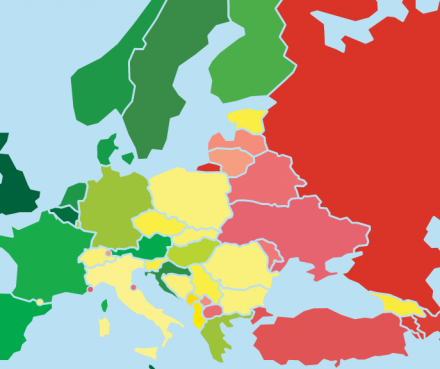
Rainbow Europe
TBILISI, DFWatch–Rainbow Europe’s LGBTI rights ranking praises positive developments in Georgia despite major setbacks.
Georgia was placed in the middle of a ranking of European countries which assessed each country’s legislation regarding rights of LGBTI (lesbian, gay, bisexual, trans and intersex) people.
According to Rainbow Europe’s ranking, Georgia came 23rd from among 49 European countries, winning a higher score than Switzerland, Italy, and the majority of Central and Eastern European states.
Georgia’s neighbours were the three states that took the lowest positions in the ranking. Turkey came 46th, Russia 47th, Armenia 48th, and Azerbaijan took 49th place.
The ranking is based on the legal index of LGBTI equality which is based on the Rainbow Europe Map and an overview of the social climate for LGBTI people in each country based on Annual Review of the Human Rights Situation of Lesbian, Gay, Bisexual, Trans and Intersex People in Europe.
Countries are ranked on the basis of laws and policies that have a direct impact on the LGBTI people’s human rights in under 6 categories: equality and non-discrimination; family; bias motivated speech/violence; legal gender recognition; freedom of assembly, association and expression; and asylum.
An excerpt from the part of report that concerns Georgia reads:
‘Hostility against LGBTI people remained palpable. Positively, the parliament adopted a new law against discrimination in all spheres, covering both sexual orientation and gender identity; a court agreed that gay and bisexual men shouldn’t be banned from donating blood; and the ombudsman proved supportive of LGBTI issues. The government and parliament also adopted comprehensive human rights strategies, and Georgia signed international treaties with both the European Union and the Council of Europe. However, the country found itself under pressure from pro-Russia forces labelling LGBTI people as a Western import. Bias-motivated speech and violence remained common’.
When DF Watch asked chairman of NGO LGBT Georgia Beka Gabadadze for a comment, he issued the following statement:
‘This data was collected in 2015. ILGA publishes an annual map in which organisation describes progress (or regress) of countries in field of LGBT rights. In 2015, the organisation noticed a progress that was made after the horrific pogrom in Tbilisi, May 17, 2013. Despite the reforms undertaken by the government of Georgia, LGBT human rights are still fragile and people are in psychological and physical danger. ILGA mentioned progress but this does not mean that the situation is good in Georgia. For example, the Georgian parliament adopted the anti-discrimination law, but there are serious problems in implementation of this law. Although the Constitutional Court cancelled the ban on blood donation ‘for homosexuals’, the new government enforced a new ban on blood donation ‘for men who have sex with men’. It’s still discriminative.
‘2016 is an election year and already we feel how the conservatives, the Church, and pro-Russian forces are trying to discredit LGBT community. They want the Supreme Court to decide on the same-sex marriage issue. They demand marriage to be only for heterosexuals. The fact is that marriage equality is a less important issue for the LGBT community nowadays. We are under daily threat of violence and bullying. In Georgia we have a problem of visibility, so gay marriage for whom?! In such a way, the lives of gay people won’t get any better. The majority of media outlets continue their homophobic coverage. So where is the progress?!’ Mr Gabadadze wrote.
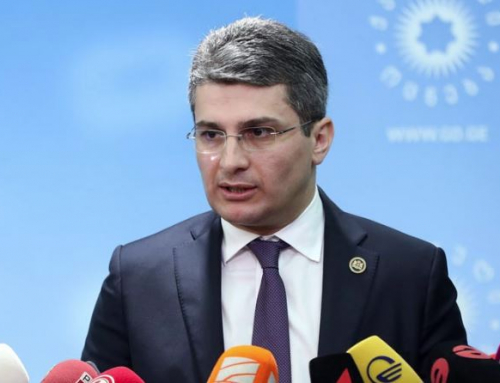
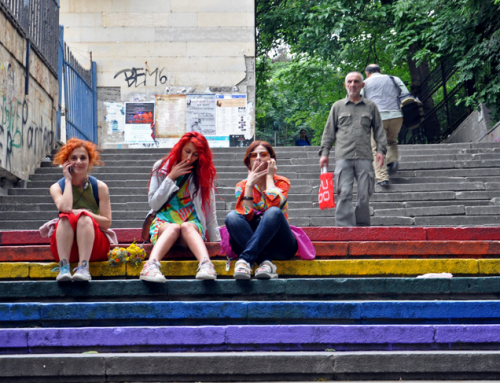
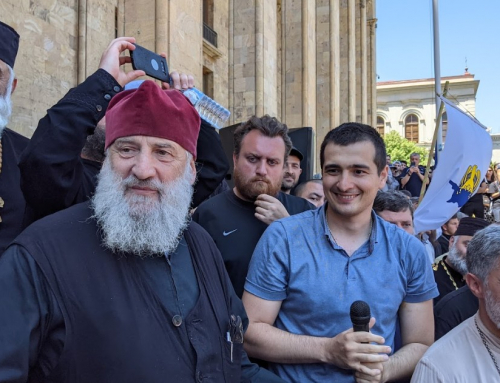
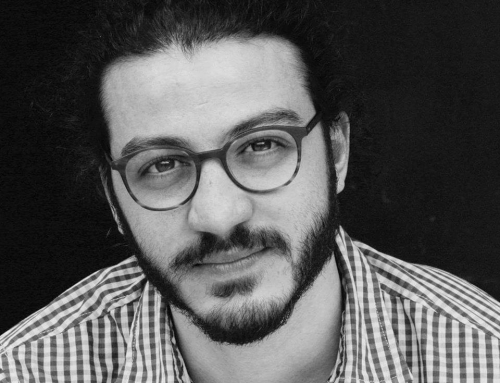
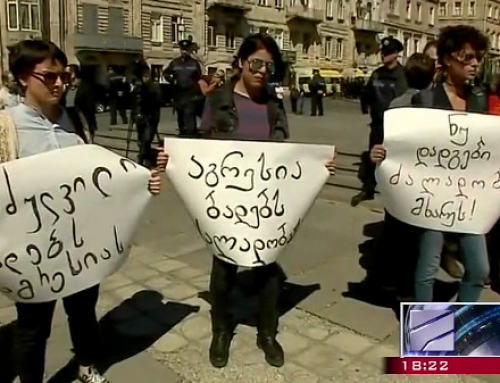
Leave A Comment
You must be logged in to post a comment.